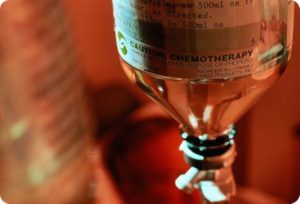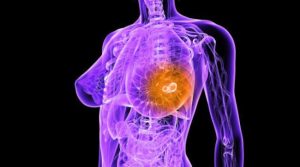Is chemotherapy effective for breast cancer?
Chemotherapy for breast cancer is an effective treatment with cytostatic agents. Its purpose is to destroy all cancer cells and prevent them from spreading in the body. This distinguishes it from methods of local exposure, for example, irradiation, in which the effect is only on a certain organ.
Treatment is carried out in short courses, with long breaks allowing the body to rest and recover. For example, drugs are administered over 3 days, after which a 27-day break is taken. The duration of treatment depends on the type of drug. On average, it is 3-6 months.
Indications for chemotherapy

Cytostatic drugs act on cancer cells, stopping their vital activity and division. This method has one significant side effect: the destruction of the cells of the immune system. Therefore, cytostatics are recommended to be administered in combination with the drug nevlast.
Chemotherapy for breast cancer can precede surgery, it helps to reduce the size of the malignant neoplasm. Thanks to this, a radical mastectomy can be replaced by a lumpectomy followed by radiation. But this treatment is not effective for every type of cancer.
Alkylating agents act like radiation, they destroy protein compounds responsible for fission processes. The drug is administered orally or intravenously.
Antimetabolites are incorporated into the metabolic processes of cancer cells, causing their death. This group includes Gemzar and 5-fluorouracil. Chemotherapy antibiotics are very different from those used to treat bacterial infections. Their effectiveness is due to the slowing down of the processes of gene division.
Taxanes interfere with the normal course of microtubule restructuring, making it impossible for cancer cells to divide.
Indications for a course of chemotherapy for breast cancer depend on many factors. First of all, from the sensitivity of the malignant neoplasm to cytostatics, the rate of its growth, the degree of damage to the lymphatic system.

The doctor should take into account the age and general condition of the woman’s body, the functioning of the ovaries. Chemotherapy for breast cancer can be used in conjunction with hormones if the tumor is considered hormonally active.
Chemotherapy methods
Chemotherapy for breast cancer can be given in two ways: oral and intravenous. For some types of cancer, it is most effective to inject the drug directly into the tumor. The simplest option is to take cytostatics in the form of tablets, while the treatment can be carried out on an outpatient basis.
However, this method does not always allow reaching the required concentration of the active substance in the blood. The intravenous method is the most effective, the drug is administered both as an injection and through a dropper. Chemistry for breast cancer can be performed both at home and in stationary conditions.

If the long-term administration of cytostatics is required, a special device is introduced under the skin – a port. It allows you to use the drug without frequent piercing of the veins. Chemotherapy drugs are administered in different ways, some slowly and others quickly.
Hyperthermia is an experimental cancer treatment that involves high-temperature effects on the tumor. It helps to reduce the number of cancer cells. A coated chemotherapy drug is injected into the mammary gland through a flexible catheter. After that, the affected area is heated to a certain temperature.
Treatment is carried out in short-term courses with interruptions of 1-4 weeks. In any case, it is recommended to go through at least 4 cycles.
The chemotherapy drug can be administered using a pump connected to the subcutaneous port.
In this case, it is enough to install these devices once and remove them at the end of the course of therapy. A woman can be treated on an outpatient basis. When discussing a treatment plan with an oncologist, a patient may be confronted with a whole list of medications that can confuse her.
Do not think that the doctor will simultaneously prescribe a large number of chemotherapy drugs. Based on the results of the histological examination, the drugs that are most effective for the existing type of cancer will be selected.
The woman’s age is not a contraindication to the use of cytostatics. It also does not affect the effectiveness of treatment. In this case, the side effects of an elderly patient may be more pronounced than in a young one.